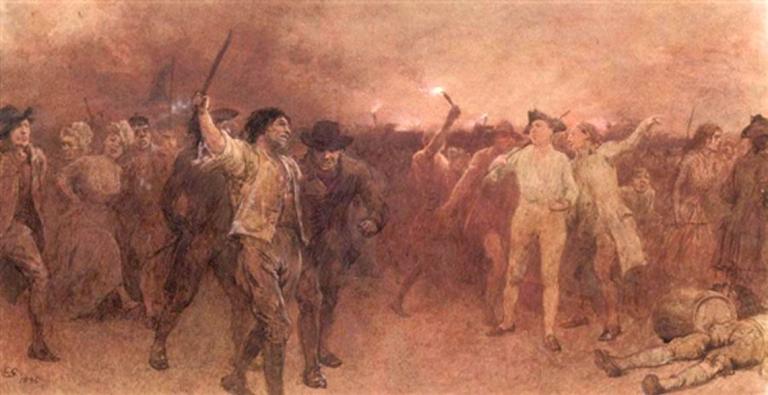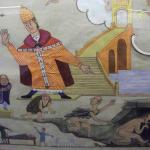
Social media outrage has caused powerful executives to lose their jobs, brought down politicians, coerced prosecutions, shamed bad behavior, and provoked countless apologies.
Perhaps our new information technology has brought back what some thought had died out: communities exerting social pressure to enforce conformity to cultural norms. In the past, social disapproval was expressed through gossip, dirty looks, and other means of public shaming, so that most individuals would be too embarrassed to go to an X-rated movie theater, lest they be seen, and the stigma against unwed pregnancies was a force for sexual restraint.
Today, social disapproval is expressed on Twitter and Facebook. But its effects are magnified, with the whole nation becoming like a gossipy small town. The social sanctions today, though, are not for transgressions like pornography or single parenthood, but for disapproving of homosexuality, violations of political correctness, and other outrages.
I think this high-tech social pressure has the potential for good–for example, exposing the sexual abuses in the #MeToo Movement–though it also has acquired the flavor of what the Founders, in setting up a democratic republic, feared: Mob rule.
Fellow Patheos blogger Jordon Cooper worries about that outcome, asking Has Social Media Outrage Become the New Judicial System?
On an episode of the sci-fi television series The Orville, the members of the crew land on a planet which looks similar to twenty-first century earth. Throughout the episode, they discover a rather odd judicial system. Individuals each have up-vote and down-vote buttons on them which are given dependent upon their actions. With enough down votes, a person is then given an opportunity to ride the media circuit in order to explain and defend themselves and their bad actions. After that, if the majority population votes that this individual is guilty, they are then lobotomized. This is an absolute democracy driven purely by the masses through social media. Like any good science fiction, this approaches the truth of our world rather well.
Social media lynch-mobs have been around since the dawn of the platform, but they have only grown in power and influence. . . .
Anger about one thing or another has lead to advertisers removing themselves from various companies/individuals, to firings (such as from the recent one of a spokesperson from CrossFit for expressing his views on a personal Twitter account), and many other things. Like the Orville episode, we have begun to execute judgment in the public mind without going through a traditional business protocol or judicial system.
[Keep reading. . .]
Certainly, the displacement of lawful processes–courts, legislature, police, government–with the direct democracy of Twitter is dangerous. The Founders knew that the masses can get riled up by demagogues, fake news (they didn’t use that term), and their own passions. Objective procedures, legal processes, and the rule of law are necessary to counter the impulses of mob rule–to slow things down, protect individual rights, and implement justice.
Then again, it seems as if our government has also become capricious and passion-driven. Social media gives voice to “the people.” Can it be used more appropriately? Does it allow for any checks and balances?
Illustration: Charles Green, “The Gordon Riots,” [Public domain], via Wikimedia Commons. [The Gordon Riots of 1780 were anti-Catholic uprisings in London.]













